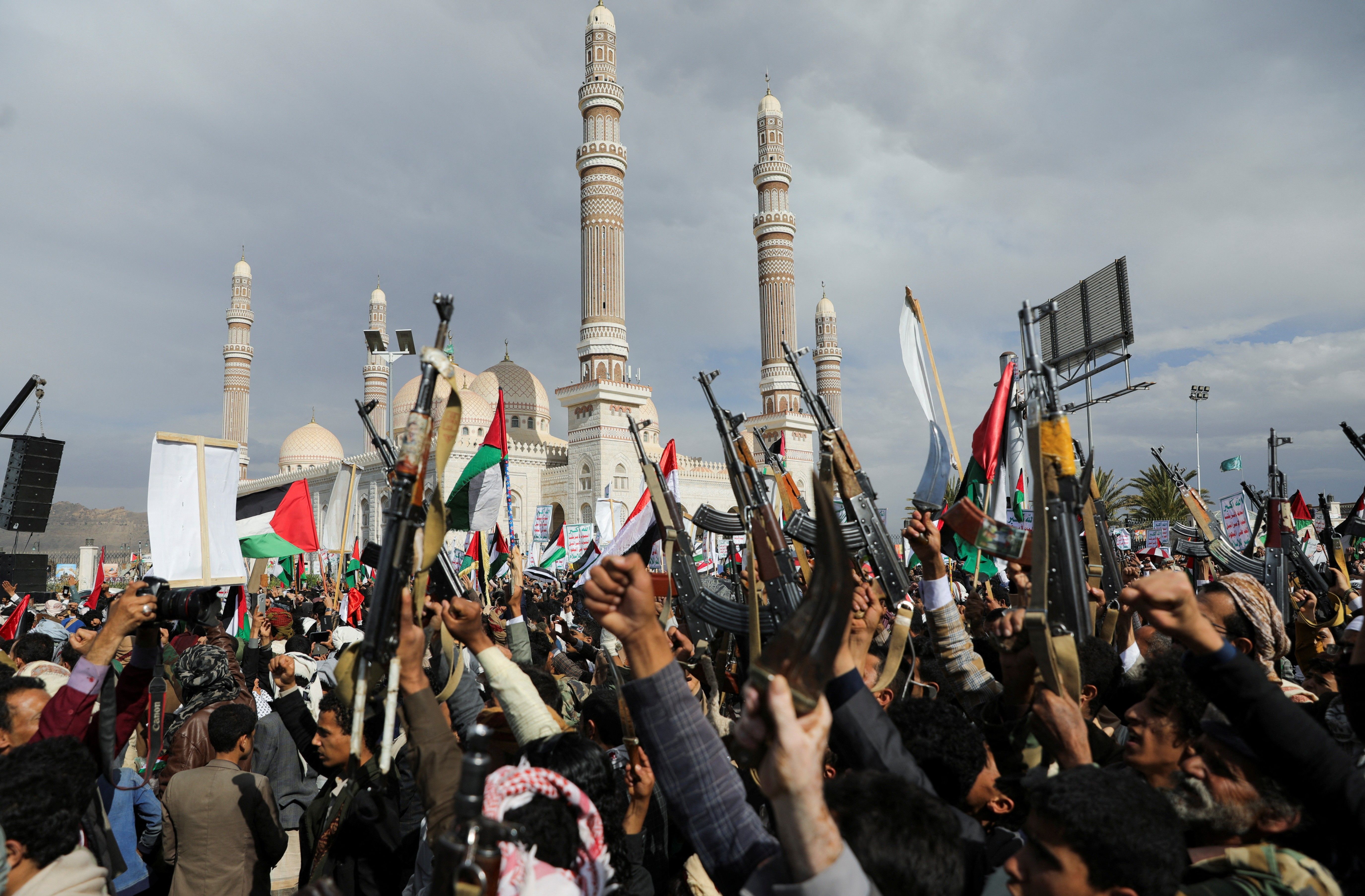In a recent public announcement of little surprise, except perhaps to the Iran-obsessed punditry and political classes in Washington and Tel Aviv, U.S. intelligence agencies concluded that Iran does not have total control over the proxy groups it supports and finances.
It’s a wonder what took so long. Proxy relationships are notoriously complex, fickle, and unpredictable; more often than not, they disappoint the sponsor, leave the latter’s strategic aims unfulfilled, or at the very worst, come back to haunt with a vengeance. Recent U.S. history has ample lessons of the pitfalls of proxy relationships, from the South Vietnamese Army to the Mujahideen. Contemporary times are no better.
The proxy relationship between the United States and the Syrian Democratic Forces, while successful in some regards, ultimately failed, according to one report from New America, because it couldn’t manage the unavoidable downside risk "that an intricate strategy of engaging proxies to fight in foreign wars can be so quickly undone."
Proxies may seem like an easy fix and politically palatable to domestic audiences more accepting of passing off the dying to someone far away rather than their own brethren, but the drawbacks can also be immense. Proxies can be both brutal and incompetent, as one expert has observed, “often go[ing] their own way, pursuing their own interests while pocketing the money and other support they receive.”
Their sponsors can be implicated in any potential human rights abuses or war crimes. In other words, what they give is not always in line with what they get and what they’re tasked to do is not always what they do in reality. Add to this the fact that both proxy and sponsor are often at the whim of shifting political winds, matters can go sideways quite quickly and grow increasingly complex. So why is Iran’s relationship with its many regional proxies considered exceptional to all this?
Some of the reason is good old-fashioned Orientalism, a propensity to see the behavior of Middle Easterners as somehow different from the rest. In this case, groups like Hezbollah, the Houthis, or the sub-groups of Iraq’s PMF, are seen as acting as if beholden at all costs to the aims of a wily and omnipresent puppet master in Tehran because of arms transfers, financial support, or the sharing of a supposed airtight alignment and commitment to religion or ideology, making them no more than servile little hatchlings birthed into this world by their parasitoid wasp overlord, as Thomas Friedman would have it.
Such ingrained thinking denudes proxies, as local actors in their own right, of agency. Few point out, for example, that Houthi attacks in the Red Sea should actually be taken seriously as a reaction to the specific actions undertaken by Israel in Gaza, rather than at the direction or discretion of Iran, and fewer still analyze their actions in the long history of solidarity between Yemenis and Palestinians dating back to the days of partition. Only recently, during a U.S. Senate subcommittee hearing, with the realization that strikes against Houthi targets in Yemen have not deterred their disruptive activities in the Red Sea, was it considered that maybe their actions are actually relatable to the war in Gaza.
The Houthis, like many local actors across the Middle East, have the agency and the desire to forge their own destiny, both in their home country and across the region. Whether their strategic aims align with Iran or not, and under what circumstances, as is the case with the U.S. and its own proxies, is a matter of consideration. But reducing Houthi actions primarily to their relationship with Iran essentially casts aside the way they see and operate in the world, as if they move about as pre-programmed robots, and not as a group that might have their own ax to grind with an American-enforced regional security architecture, not only impacting the situation in Yemen and their own pursuit of power there but elsewhere.
Besides, seeing Houthi behavior as mainly the handiwork of Iran exudes an intellectual laziness that not only foregoes the assessment of complex local and regional dynamics, but also holds deep implications in terms of policy solutions.
If Iran is the only problem, then cutting “off the head of the snake” or “Bomb, Bomb, Iran,” long advocated to varying degrees by multiple Arab governments, Israel, and many in the halls of Washington, is the solution, setting the potential stage for even more Western military intervention or escalating regional conflict. It's well documented how that turns out.
On the other hand, to assess the Houthis as a group with an agency and history of their own requires the search for more complex and contextual solutions, which may not be entirely solvable through military force, but might include negotiation and accommodation, and in the very least the recognition that military actions undertaken by the U.S. and its allies elicit reactions from local actors on their own terms.
- Don't like radical Houthis? Blame Bush's wars ›
- Houthi rivals in Yemen want to exploit Red Sea rift ›
- Biden’s problem in Yemen: The Houthis are winning ›
- Attacks on Red Sea shipping pay dividends for Yemen’s Houthis ›














